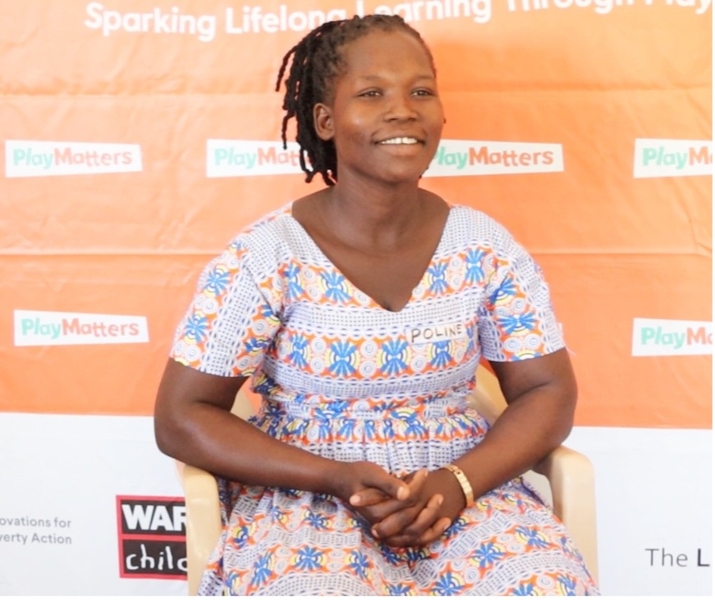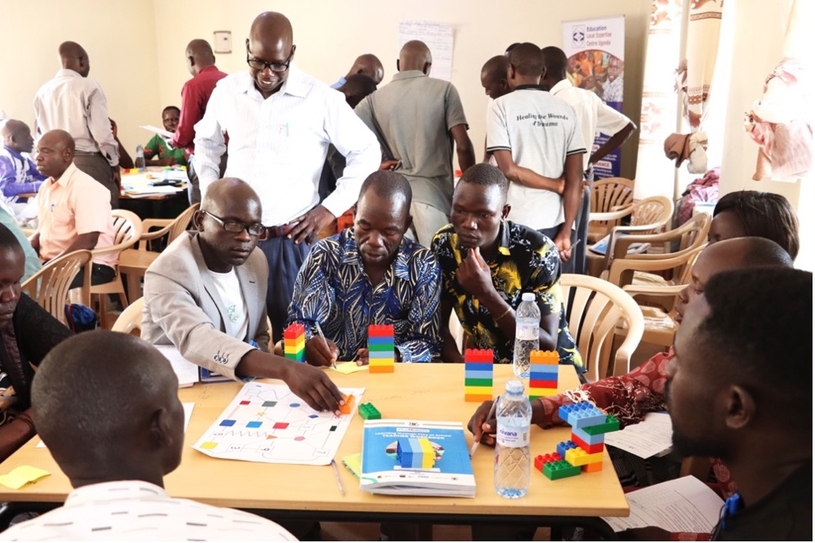Learning Through Play teacher training transforming teaching one class at a time.
Third cohort of teachers attending training in Arua, Uganda say they have noticed improvement in the way students participate in the lessons and their growing eagerness to learn.
Apr 16, 2025

PlayMatters is on a journey to train more teachers on how to use Learning through Play (LtP) as an active teaching and learning method, and has recently initiated a third cohort of pre-primary and primary school teachers. Teacher training workshops alongside comprehensive support for teachers can lead to tangible changes happening inside classrooms and a long-term impact on children’s learning and well-being. Since the inception of the project, more than 12,960 teachers across the three project implementing countries have undergone training in LtP methodologies equipping them with skills to integrate LtP into lessons. For many of these teachers, LtP is no longer just a far-off concept but a lived reality in their classrooms. Teachers are increasingly testifying to seeing positive changes in their learners with visible improvements in critical thinking, creativity, participation, and eagerness to learn.
Poline, a Primary One and Four teacher at Pamvara Primary School in Madi-Okollo District, shared how she is embracing innovative teaching methods in her classes. Poline was a participant at the recently concluded five-day foundational training at Arua Core Primary Teacher College in Arua City. Inspired by her former teacher’s engaging approach, Poline has always strived to make learning meaningful for her students.
"PlayMatters encourages active teaching and learning, creating a safe space where every child can thrive. Initially, I faced challenges using LEGO Bricks as teaching and learning materials because they were new to me but after this training, I feel confident to integrate the bricks better in my lessons," she shares.

Poline, a teacher at Pamvara, shares her journey of implementing LTP concepts in her teaching.
Despite large class sizes and limited resources, Poline remains hopeful and emphasises the need for continuous mentorship and resources to ensure the successful implementation of LtP. When asked about the future, Poline says she envisions one where Learning through Play transforms not just her teaching experience but also reduces school dropout rates and fosters a love for learning. "This initiative has the potential to create lasting change, and I hope it continues to expand to impact even more students," she says with optimism. Many teahers have reported improvements in student participation where more children are actively contributing to lessons rather than being passive listeners.

Teachers interact with the LEGO bricks during the teacher training session at Arua Core Primary Teacher College.
Teachers revealed that critical thinking and problem-solving skills have improved in students because LtP encourages learners to explore, experiment, and learn collaboratively. And there is more inclusivity and social development in classes because LtP fosters a learning environment where learners feel safe to express themselves, reducing fear and boosting confidence. There is a noticeable increase in teachers’ ability to plan engaging lessons, assess learners effectively, and integrate LtP methods in a structured manner.
While teacher training is a crucial first step, sustaining long-term impact requires continuous mentorship, resource support, and policy alignment. PlayMatters continues to build the capacity for teachers like Poline in refugee and host community districts in Uganda through ongoing coaching and peer-learning sessions, integration of LtP into the national Continuous Professional Development framework and community engagement initiatives that involve parents and caregivers in play-based learning to reinforce the approach beyond the classroom. But the success of LtP is not just in the hands of teachers. Stakeholders, policymakers, and implementing partners like the International Rescue Committee and the Ministry of Education and Sports will continue to work together to ensure that Learning through Play becomes a cornerstone of Uganda’s education system.